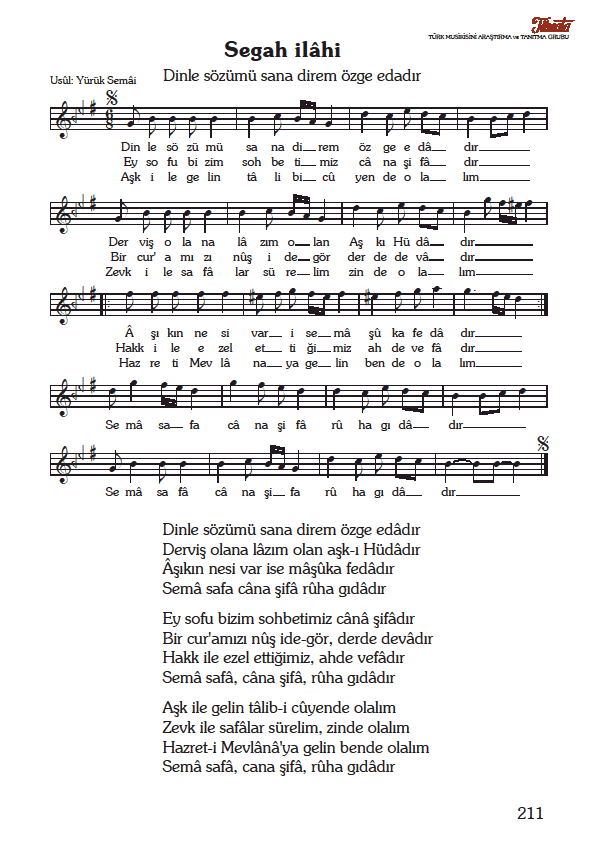Dinle
sözümü sana
direm özge
edadır
Derviş olana
lazım olan
aşk-ı
hüdadır
Aşıkın nesi
var ise
maşuka
fedadır
Sema Sefa
Cana Şifa
Ruha Gıdadır
sema Sefa
Cana Şifa
Ruha Gıdadır
Ey sofu
bizim
sohbetimiz
cana şifadır
Bir curamızı
nuşedegör
derde
devadır
Hak ile ezel
ettiğimiz
ahde vefadır
Sema safa
cana şifa
ruha gıdadır
Sema Sefa
Cana Şifa
Ruha Gıdadır
sema Sefa
Cana Şifa
Ruha Gıdadır
Gelin aşk
ile talib-i
cuyande
olalım
Zevk ile
safalar
sürelim
zinde olalım
Hazreti
mevlanaya
gelin bende
olalım
Sema safa
cana şifa
ruha gıdadır
Sema
Sefa Cana
Şifa Ruha
Gıdadır
sema Sefa
Cana Şifa
Ruha Gıdadır
Şem-i
ruhuna
cismimi
pervane
düşürdüm
Evrak-ı dili
ateş-i
suzana
düşürdüm
Bir katre
iken kendimi
ummane
düşürdüm
Takrir
eylemem
derdü
derunum
elemim var
Mevlayı
seversen
söyletme
beni gamım
var
Sema Sefa
Cana Şifa
Ruha Gıdadır
sema Sefa
Cana Şifa
Ruha Gıdadır

